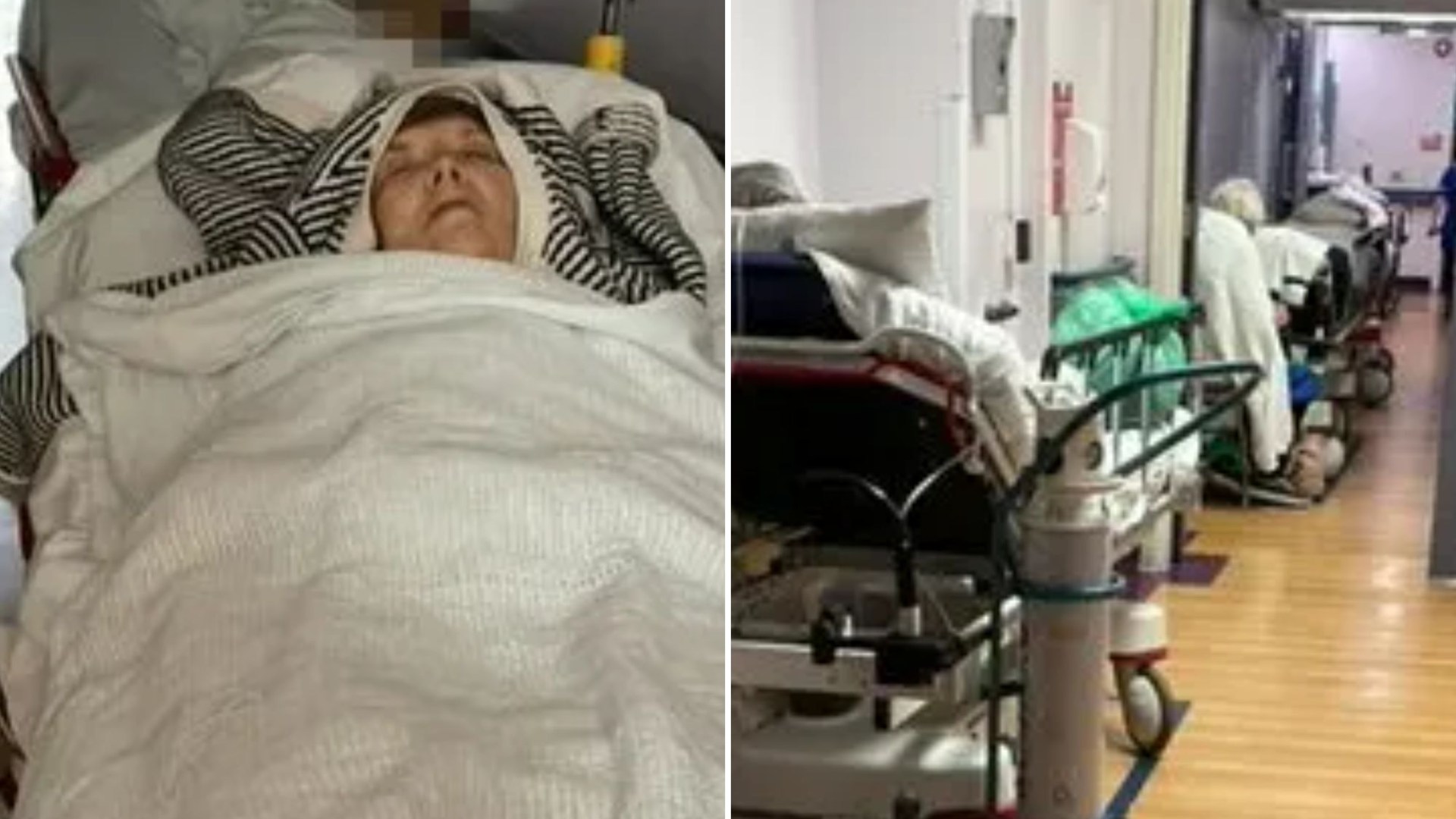AN 86-YEAR-OLD grandma waited 25 hours in a hospital corridor for a ward bed after a suspected heart attack – before giving up and going home.
Maria Bodea suffered the medical emergency at home and was taken to St Helier Hospital, Sutton, London, by ambulance.
7

7

7
But there were no ward beds available and the gran-of-two was put on a trolley bed in a corridor with up to 20 others, her family say.
Widow Maria and her daughter Sanda Ghiurcusor, 57, were stationed next to a door leading outside, forcing them to wear wooly hats to keep warm.
Unable to face another night in a corridor with “no privacy” Maria self-discharged herself 25 and a half hours after she arrived in hospital.
Sanda says others sleeping in the corridor said they’d been waiting there since last Sunday (September 15).
She says “embarrassed” staff said the situation was the same across every trust in the country.
The medical PA from Banstead, Surrey, was keen to stress that her frustrations weren’t with the staff.
Sanda said: “It was like a warzone – it was a big line of beds next to the wall.
“We were put straight in the corridor near the automatic doors so we had cold coming in – it was a really bad night.
“People could walk past, cleaners walk past, and there’s no privacy.
“Someone else said they had been there since Sunday.
“My mum is very frail and confused now.
“The matron told me it’s like this in every trust in the country.
“It’s not like the staff is not nice, everyone does a brilliant job but the management doesn’t seem to invest in what’s needed.
“It’s not the doctor’s fault – you can see the staff are stressed and embarrassed.”
Sanda and Maria arrived in hospital at around 6.30pm on Tuesday.
Maria underwent a CT scan of the head and bladder tests and was referred to a consultant for further tests on Thursday but decided she couldn’t stay another night in the corridor.
NHS crisis deepens after GPs slash hours
BY SAM BLANCHARD
GPs have slashed their hours by more than ten per cent over the past decade, a study found.
Meanwhile NHS patient numbers are up and they have more illnesses, resulting in longer waiting times.
The poll found doctors worked an average of 26 hours a week in 2022, down from 30 in 2015.
It included part-time GPs but not overtime hours.
There was also a 2.7 per cent drop in appointment hours but patient lists went up nine per cent.
The number of people with long-term illnesses also rose 32 per cent.
Manchester University’s Dr Rosa Parisi told the British Journal of General Practice: “We fear GPs are unwilling or unable to face more intense day-to-day pressures.
“It is also down to early retirement, insufficient numbers of newly trained GPs and a lack of overseas recruitment.”
Male GPs were more likely to cut their hours.
Dr Parisi added: “Policies are desperately needed to incentivise them to work longer.”
A separate poll said a third of people find it hard to contact a GP.
The Lib Dems say ten million this year have waited a month or more.
She was still in the corridor at 8pm on Wednesday, so discharged herself then.
Sanda – who is originally from Romania – said the situation in the hospital made her “sad”.
She added: “They were swamped. It’s just sad. I couldn’t believe I was in England.
“Even in Romania, older people wouldn’t be treated like this.”
Maria had some medication changed before leaving the hospital and she’s been referred to another consultant for further tests.
A spokesperson for Epsom and St Helier University Hospitals NHS Trust said: “While we always do our best for our patients, these are not the conditions we want to care for them in and we are really sorry that Mrs Bodea did not have a good experience.
“When our services are exceptionally busy, as they are at the moment, we sometimes have to care for people in other areas of the hospital until a suitable bed becomes available – this is always only a temporary measure and patients are supervised by clinical teams at all times.”

7

7

7

7




